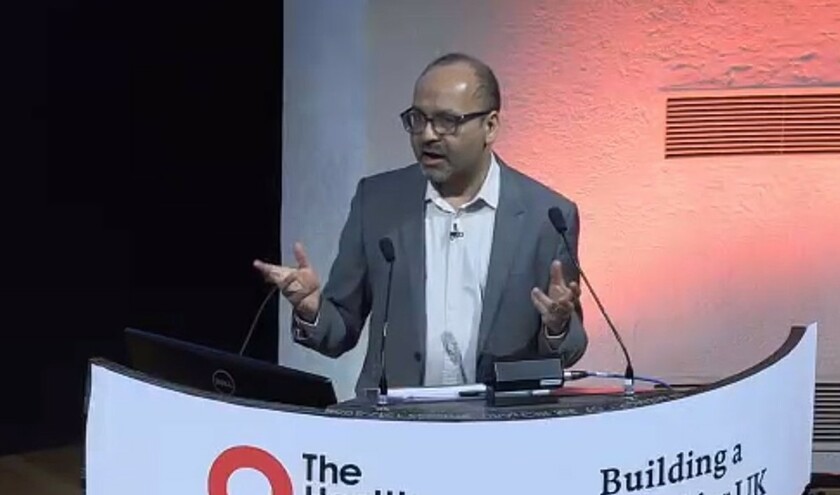Hetan Shah, chief executive of the British Academy, headlined The Health Foundation's Real
Challenge Annual Lecture 2025 in February.
His lecture focused on the bits that he thinks are missing from the AI discussion, such as how to make AI trustworthy, how to layer AI into public services and how to shape the market.
Shah told delegates: ‘At the moment, it's still a bit glitchy. This year was somehow talked about as the year of adoption for AI, but actually, companies are increasingly talking about it as a year of observation.
‘And I think it's useful for you to know the private sector, which is often lauded as kind of being at the cutting edge of adopting technology, is itself sort of a bit gingerly in places about using AI.'
He pointed out: ‘Actually AI is just what we call the stuff that doesn't work yet. So as soon as it works, you stop calling it AI, and it becomes software. So poor old AI will always be glitchy because it's the bit that doesn't work.'
Shah also discussed how ‘very hard' it is to get independently verified evidence about AI.
‘You have a mixture of hyped press releases from the companies themselves, and, on the other hand, newspapers laying into the faults that you've seen in particular models, but very hard to get a kind of actual, genuine evidence base,' Shah said.
However, he said that things are starting to improve, and there are a lot of trials which ‘are really useful'.
He added: ‘So we really need to evaluate, invest in our evaluative capacities. That means skills strengthening, in particular, our statistical capabilities. There's a lot of junk science out there, and actually not enough statisticians involved in evaluating all of this.'
Shah told delegates the multiplicity of NHS trusts means that everyone is evaluating everything locally.
He added: ‘Surely, it's time for a much more centralised approach, a kind of one and done - we've evaluated this thing, you can all use it, and that should, I hope, lead to stopping the over
evaluation of some quite useful and not very risky tools that can just be used, but also proper evaluation of the trickier tools that really need a bit of interrogation.'
In addition, Shah said the voice of the public has been really missing, ‘and if we're to make AI trustworthy, it must come in'.
Trustworthiness will be ‘really critical' if we're to embed AI in public services, he added.
Shah said: ‘There is a danger sometimes that AI optimises what can easily be measured, and those things that can't be measured, which includes relationships and community, can get left out. I don't want to overstate that.'
He added: ‘It's not just about the technology. It's about how the technology interacts with people and the environment that it's within. So we've got to invest in key capabilities for innovation. Some of that is about people. It's about skills, culture, leadership. How can we have confidence to take risks and manage those, to learn and adapt?'
Shah highlighted the need to employ people who ‘actually understand the technology and tell you if you're being massively fleeced'.
But warned them: ‘How are you going to hire them and keep them, given that they could earn quite a lot more elsewhere. That's a problem, and I don't have any easy answer for it.'
Shah said another thing that he has picked up is that the NHS is ‘not a great body to work with' if you're a small business or start-up.
‘It's in our interests, I think, to have these organisations. But the NHS itself will have to change,' he added.



